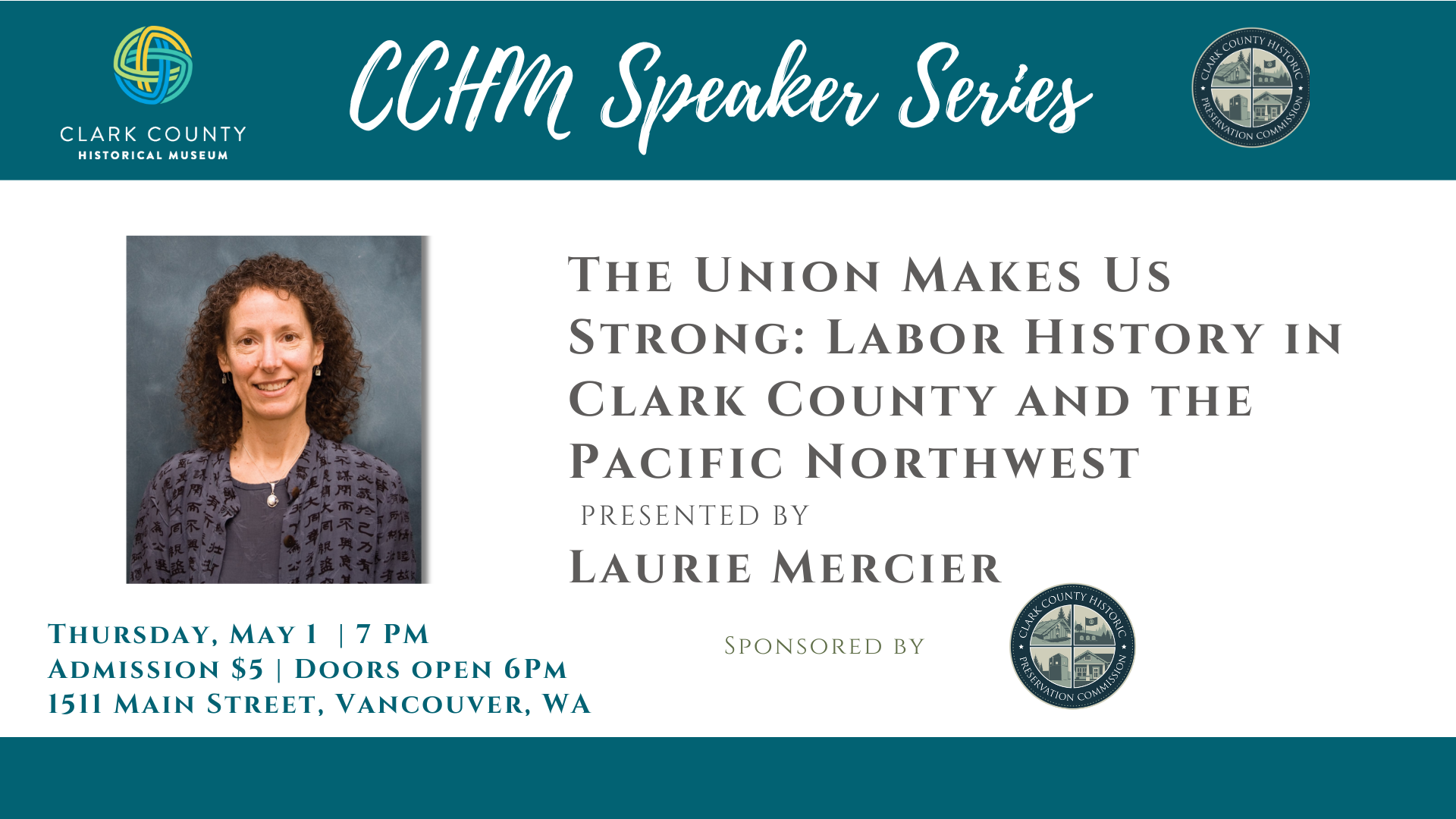
- This event has passed.
Event Series:
CCHM Speaker Series
CCHM Speaker Series: The Union Makes us Stronger – Labor History in Clark County and the Pacific Northwest
May 1 @ 7:00 pm - 8:00 pm PDT
Free
Join us on May Day—International Workers’ Day—for a fascinating talk with Dr. Laurie Mercier, as we explore how labor unions and working people have shaped the history of Clark County and the broader Pacific Northwest.
Dr. Mercier will delve into the rich and often surprising history uncovered during the creation of the Labor: A Working History exhibit at CCHM. From early struggles for better working conditions to the fight for the eight-hour day, discover how our local history ties into global movements for workers’ rights.
Laurie Mercier is the Claudius O. and Mary W. Johnson Distinguished Professor of History at Washington State University Vancouver, where since 1995 she has taught the history of the United States, the Pacific Northwest, immigration and migration, women, and labor. She is former associate director of the Center for Columbia River History, a former president of the Oral History Association, former co-director of the WSUV Center for Social and Environmental Justice, and co-director of the WSUV Columbia River Basin Ethnic History Archive project:
Mercier has authored numerous publications that explore the intersections of class, race, gender, and region, and about memory and oral history, including the books Speaking History: The American Past through Oral Histories, 1865-2001; Mining Women: Gender in the Development of a Global Industry, 1670-2000; and Anaconda: Labor, Community, and Culture in Montana’s Smelter City. Over the years she has collaborated often with the Museum, including co-curating the exhibits Labor: A Working History (2013-15)
To view the exhibit (and other past exhibits) – https://cchmuseum.org/digital-exhibits/
and Bridging the Gap: the History of the I-5 Columbia River Bridge (2011-12).
This event is free and open to the public
